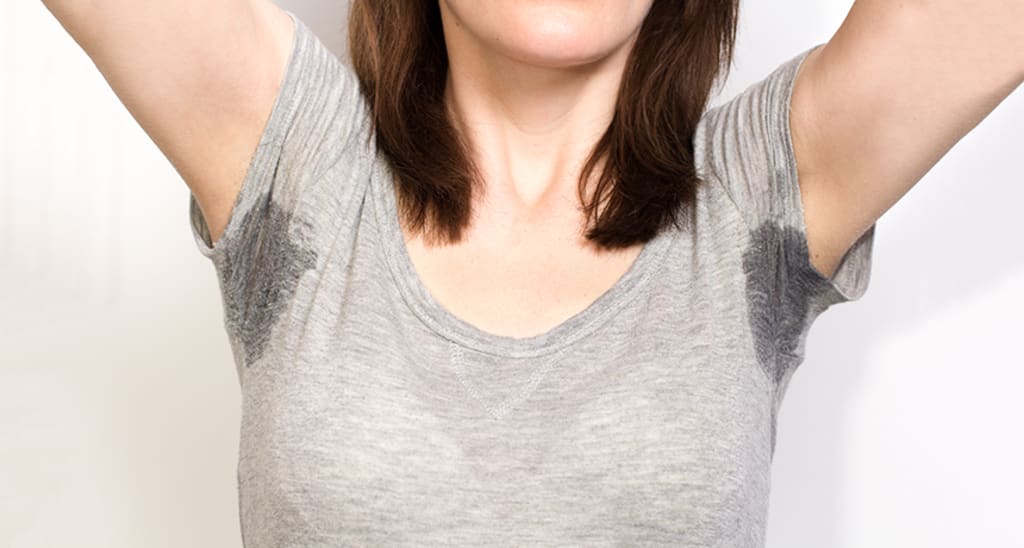
Today, we're going to dispel some myths about body odor. Our bodies have two types of sweat: one from eccrine glands found all over the body, which helps regulate our temperature during physical activities, and another from apocrine glands found in areas like the underarms, groin, and chest, which are associated with odor. Interestingly, the sweat itself from apocrine glands is not smelly; it's the bacteria in these areas that feed on the sweat and produce the unpleasant odor as a by-product.( scroll to the bottom of the article to read about the main key points of this story)
It's essential to understand that having thousands of types of bacteria, fungi, and yeast on our bodies is entirely normal, forming our unique microbiome. However, there are some helpful tips to combat smelly odor. First, it's perfectly fine to shower daily. Eating a healthy diet is also crucial, as our body's production can be affected by our overall well-being. Not everyone's armpits stink, as about two percent of the population has a special genetic mutation that prevents smelly odors.
If you're dealing with smelly armpits, various treatments are available, such as using antibacterial soap, oral medications, prescription antiperspirants, and even botox injections to reduce sweating in the area temporarily. Smelly feet are also common, primarily due to the high concentration of sweat glands and the moist environment created within enclosed shoes. Washing feet with antibacterial soap and wearing absorbent cotton socks can help combat the odor.
Contrary to the belief that our signature scent never changes, our body odor can vary throughout our lives due to hormonal changes, diet, and aging. Moreover, sweating is not an effective way to detox the body; our liver and kidneys primarily handle detoxification.
The idea that antiperspirants are dangerous because of aluminum is a myth. While aluminum is present in the breast tissue near the underarm, current data does not suggest a link to breast cancer. However, individuals can choose other options if they feel more comfortable. Deodorants help mask odor, while antiperspirants reduce sweating by clogging sweat glands.
Certain foods can affect body odor, like cruciferous foods producing sulfuric acid or red meat affecting the smell. Embracing our unique scents and accepting that everyone smells different is essential, and it's okay to be a little stinky at times. If you experience abnormal or persistent odor issues, consider consulting a dermatologist or physician. Remember, we're all human, and showing kindness to ourselves and others is crucial, even when it comes to our natural scents.
Understanding body odor is important to maintain personal hygiene and overall well-being. Here are some key points to know about body odor:
Types of Sweat: There are two types of sweat glands in the body - eccrine glands and apocrine glands. Eccrine glands are found throughout the body and help regulate body temperature during physical activities. Apocrine glands are concentrated in areas like the underarms, groin, and chest, and their sweat is associated with odor due to bacterial interaction.
Bacterial Involvement: The actual sweat produced by apocrine glands is not smelly. It's the bacteria on our skin that feed on this sweat and produce the unpleasant odor as a byproduct. Maintaining good hygiene can help minimize this bacterial activity.
Normal Microbiome: Our bodies host thousands of types of bacteria, fungi, and yeast, which form our microbiome. This is a natural and normal part of our body's ecosystem.
Tips to Control Odor: Maintaining good personal hygiene is essential. Regular showers, especially after physical activities, can help reduce body odor. Eating a healthy diet and staying hydrated can also contribute to controlling body odor.
Individual Differences: Not everyone's body odor is the same. Genetics, lifestyle, diet, and hormones play a role in how a person's body smells. Embracing individual differences is essential in accepting body odor variations among people.
Treatment Options: If dealing with persistent or bothersome body odor, various treatment options are available. These include using antibacterial soap, oral medications, prescription antiperspirants, and even botox injections to reduce sweating in specific areas temporarily.
Sweating and Detoxification: Sweating is a natural process that helps regulate body temperature but is not a primary method of detoxification. Detoxification primarily occurs through the liver and kidneys.
Antiperspirants and Aluminum: There is a myth that antiperspirants containing aluminium cause breast cancer. However, current data does not support this claim. If concerned, individuals can choose other options or consult a healthcare professional.
Smelly Foods: Certain foods, like cruciferous vegetables or red meat, can affect body odour. However, a balanced diet is essential for overall health, and individual body odour can be managed through proper hygiene.
Embracing Personal Scents: Our body odour can change throughout our lives due to various factors, such as hormones and aging. Embracing one's natural scent and accepting individual differences is essential for overall self-acceptance.
Remember, while body odour is a natural part of being human, maintaining good hygiene and seeking medical advice when necessary can help manage any concerns regarding body odor.






Comments
There are no comments for this story
Be the first to respond and start the conversation.